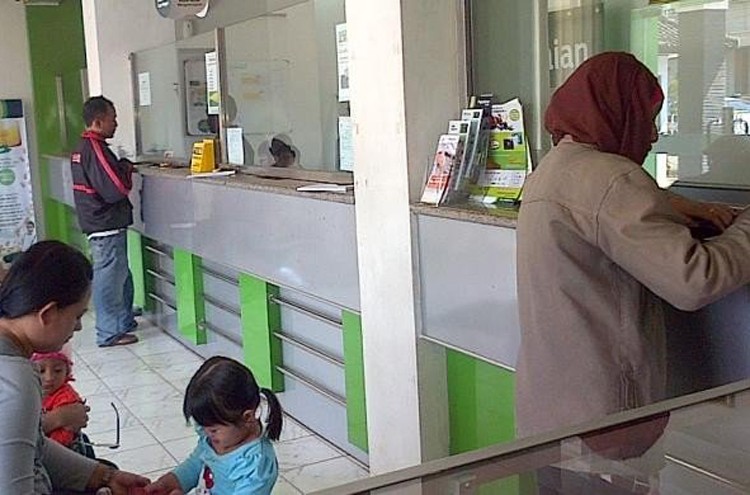Popular Reads
Top Results
Can't find what you're looking for?
View all search resultsPopular Reads
Top Results
Can't find what you're looking for?
View all search resultsThe untold business of Indonesia's private pawnshops
While the OJK has issued a regulation to make licensing easier for private pawnshops, the government has yet to address the issues of governance, oversight and whether or not to integrate this lucrative but marginalized business so it can truly contribute to growth.
Change text size
Gift Premium Articles
to Anyone
I
t is no secret that a large portion of Indonesians obtain instant loans from private pawnshops, which charge higher interest rates than credit cards. Recently, the Financial Services Authority (OJK) has made it easier for private pawnshops to obtain permits, providing more opportunities for licensed business owners to generate income, but also highlighting the importance of addressing profitability issues, lack of oversight and governance in one of Indonesia's neglected financial sectors.
Private pawnshops, along with cooperatives, are part of an exclusive industry class closed to foreign ownership. This protection aims to protect socially sensitive and locally integrated sectors.
The difference is that cooperatives rely on members' joint capital, while private pawnshops operate with internal funds. Private pawnshops are generally small or family-owned businesses that offer quick loans. Instant loan services can be accessed in just minutes, unlike traditional banks or fintech lenders that require documentation and credit assessments. This quick response is invaluable, and can even make the difference between success and failure for micro-entrepreneurs or freelancers.
The economics behind private pawnshops thrive due to their short loan cycles, low loan-to-value (LTV) ratios and easily salable collateral. Benefits for pawnshop owners include minimal default risk, while borrowers face some of the highest interest rates in Indonesia’s financial industry. Monthly interest rates range from 6 to 10 percent, far exceeding those of microloans or credit cards. This does not include the 1 percent provision fee charged on each loan. Borrowers are aware of these high costs, yet they continue to use them out of necessity.
Regarding collateral, the private pawnshop business remains fragmented. Due to the added risk premium, collateral acceptance has expanded to include electronics, motor vehicle ownership certificates and electronic devices. Unlike gold, which has a clear intrinsic value, the value of electronics and other assets remains subjective. An iPhone might be more acceptable in Jakarta than in smaller cities due to the uncertainty surrounding resale. Situations like this are common, leaving borrowers with no choice but to rely on a pawnshop's decision for even minimal solvency.
Governance remains a pressing challenge. Although the OJK has relaxed licensing criteria, enforcement remains weak. The current growth of the black market is closely linked to the continued prevalence of private pawnshops violating regulations. The public finds it difficult to distinguish between licensed and unlicensed pawnshops, leaving them highly vulnerable to hidden fees, collateral disputes and fraud.
It is important to note that while pawnshops operate within the financial industry, which encompasses cash management, collateral storage and insurance services, they are rarely included in the formal industry’s discussions about transparency standards, consumer protection and financial inclusion, despite their close ties to all three.



















